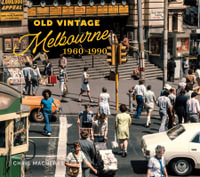
At a Glance
Paperback
RRP $59.99
$41.25
31%OFF
Aims to ship in 25 to 30 business days
When will this arrive by?
Enter delivery postcode to estimate
The mechanized assembly line was invented in 1913 and has been in continuous operation ever since. It is the most familiar form of mass production. Both praised as a boon to workers and condemned for exploiting them, it has been celebrated and satirized. (We can still picture Chaplin's little tramp trying to keep up with a factory conveyor belt.) In America's Assembly Line, David Nye examines the industrial innovation that made the United States productive and wealthy in the twentieth century.
The assembly line-developed at the Ford Motor Company in 1913 for the mass production of Model Ts-first created and then served an expanding mass market. It also transformed industrial labor. By 1980, Japan had reinvented the assembly line as a system of "lean manufacturing"; American industry reluctantly adopted the new approach. Nye describes this evolution and the new global landscape of increasingly automated factories, with fewer industrial jobs in America and questionable working conditions in developing countries. A century after Ford's pioneering innovation, the assembly line continues to evolve toward more sustainable manufacturing.
From the Model T to today's "lean manufacturing"- the assembly line as crucial, yet controversial, agent of social and economic transformation.
The mechanized assembly line was invented in 1913 and has been in continuous operation ever since. It is the most familiar form of mass production. Both praised as a boon to workers and condemned for exploiting them, it has been celebrated and satirized. (We can still picture Chaplin's little tramp trying to keep up with a factory conveyor belt.) In America's Assembly Line, David Nye examines the industrial innovation that made the United States productive and wealthy in the twentieth century.
The assembly line-developed at the Ford Motor Company in 1913 for the mass production of Model Ts-first created and then served an expanding mass market. It also transformed industrial labor. By 1980, Japan had reinvented the assembly line as a system of "lean manufacturing"; American industry reluctantly adopted the new approach. Nye describes this evolution and the new global landscape of increasingly automated factories, with fewer industrial jobs in America and questionable working conditions in developing countries. A century after Ford's pioneering innovation, the assembly line continues to evolve toward more sustainable manufacturing.
Industry Reviews
Nye's fascinating book deserves a wide readership.
-- Howard Segal * Times Higher Education *Nye's beautifully written interpretation covers so much ground that historians of technology, labor, business, international economics, and American culture will all find it an invaluable resource, offering new reasons to appreciate the hundred-year history of the assembly line.
-- Amy Sue Bix * American Historical Review *ISBN: 9780262527590
ISBN-10: 0262527596
Series: America's Assembly Line
Published: 30th January 2015
Format: Paperback
Language: English
Number of Pages: 354
Audience: General Adult
For Ages: 18+ years old
Publisher: RANDOM HOUSE US
Country of Publication: US
Dimensions (cm): 23.0 x 15.1 x 2.2
Weight (kg): 0.38
Shipping
| Standard Shipping | Express Shipping | |
|---|---|---|
| Metro postcodes: | $9.99 | $14.95 |
| Regional postcodes: | $9.99 | $14.95 |
| Rural postcodes: | $9.99 | $14.95 |
How to return your order
At Booktopia, we offer hassle-free returns in accordance with our returns policy. If you wish to return an item, please get in touch with Booktopia Customer Care.
Additional postage charges may be applicable.
Defective items
If there is a problem with any of the items received for your order then the Booktopia Customer Care team is ready to assist you.
For more info please visit our Help Centre.
You Can Find This Book In
This product is categorised by
- Non-FictionSociety & CultureCultural StudiesHistory of Ideas
- Non-FictionIndustry & Industrial StudiesMedia, Entertainment, Information & Communication IndustriesPrinting
- Non-FictionIndustry & Industrial StudiesManufacturing IndustriesRoad Vehicle Manufacturing Industry
- Non-FictionEngineering & TechnologyTechnology in GeneralEngineering in General
- Non-FictionHistorySpecific Events & Topics in HistorySocial & Cultural History
- Non-FictionHistorySpecific Events & Topics in HistoryIndustrialisation & Industrial History
- Non-FictionEngineering & TechnologyTechnology in GeneralHistory of Engineering & Technology
- Non-FictionBusiness & ManagementManagement & Management TechniquesManagement of Specific AreasProduction of Quality Control Management























